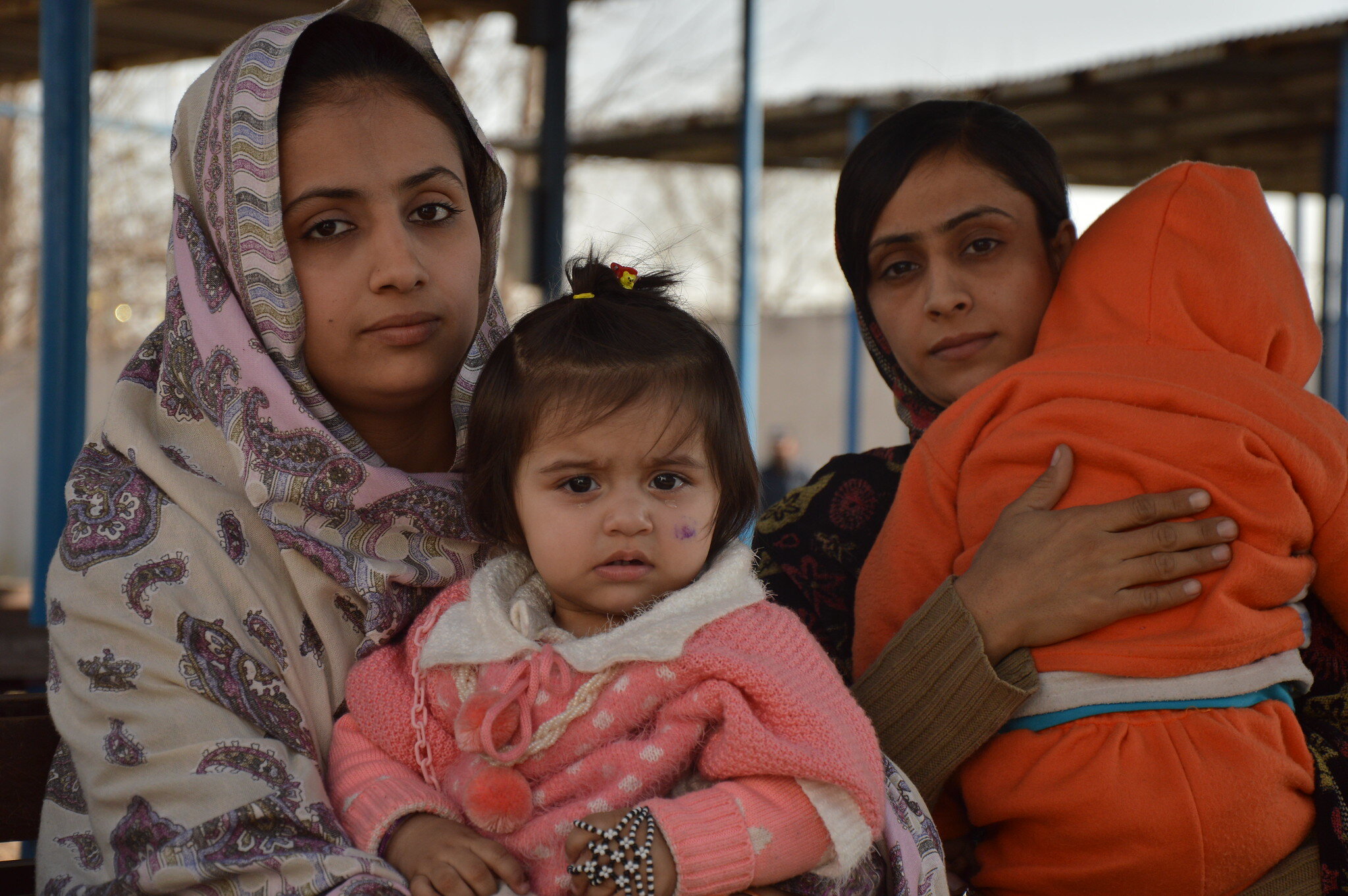Catholic Bishops, Church Charities Pledge To Help Afghan Refugees
Afghan refugees who settled in Pakistan in 2018. Creative Commons photo by European Union/ECHO/Pierre Prakash.
WASHINGTON — The U.S. Conference of Catholic Bishops announced that it will commit church members from multiple Roman Catholic charities to help process the tens of thousands of refugees expected to arrive in the country from Afghanistan.
In a statement, the chairman of the USCCB assured the Catholic faithful that their church is monitoring the increasingly frantic evacuation efforts in Afghanistan. The conference also announced Tuesday that it was working with military bases to help manage the rapid influx of refugees from Afghan airports.
“For the past few weeks, staff from the USCCB, Catholic Charities, and other partners have been at Fort Lee in Virginia, assisting the U.S. government in the welcoming and resettlement of SIV applicants and their families,” the USCCB said in a statement on the escalating evacuation crisis. “We will continue that work as long as necessary until those who are in harm’s way are brought to safety.”
The U.S. has been overseeing a frantic and unprepared exit of Afghanistan after an unexpected surge of Taliban conquests across the country, including the capital city of Kabul.
The Taliban has opened fire on protestors, pulled civilians through the street with nooses around their necks and beaten individuals attempting to reach evacuation airports.
Christians have been targeted by Taliban forces since long before the U.S. began exiting the country earlier this month.
“The U.S. bishops, through Migration and Refugee Services, and together with Catholic Charities, are grateful for the opportunity to partner with the government and other NGOs to ensure the warm welcome, safe relocation, and resettlement of those who have already contributed greatly to our nation,” the USCCB statement continued.
Since the Taliban takeover, the U.S. transport planes returning to America have been full of refugees — fearful of their fate as religious minorities — U.S. personnel and locals who had assisted the military.
The total number of evacuees is yet to be determined, but experts estimate that there will be tens of thousands of Afghans, some with incriminating histories, attempting to immigrate to the U.S.
The statement continued, “The government’s goal to relocate as many as 30,000 SIV applicants to the United States remains a monumental task that hangs in the balance. We know that time is of the essence to help our brothers and sisters in need, and we call on our government to act with the utmost urgency, considering all available avenues to preserve life.”
The bishops’ call to preserve life comes as no surprise as attempts to work with the Taliban to avoid the loss of innocent life prove only partially successful. Taliban forces have reportedly been attacking both Afghans and Americans on their way to the airport to escape.
“We are proud to have the opportunity to welcome and assist those who have kept Americans safe in Afghanistan,” the bishops’ statement concluded. “By working with the United States, each of these individuals have put their lives and those of their family and friends at risk. As they now leave everything behind to begin new lives here, the many sacrifices they’ve made should not go unacknowledged.”
Pope Francis has also weighed in on the Afghan crisis. During an Angelus mass not long after the conflict began, the pontiff said, “I join in the unanimous concern for the situation in Afghanistan. I ask all of you to pray with me to the God of peace, so that the clamor of weapons might cease and solutions can be found at the table of dialogue.”
Evacuations continue as President Joe Biden has said he remains committed to a full and permanent withdrawal from Afghanistan.
Timothy Nerozzi is a writer and editor from northeastern Pennsylvania. He covers religious issues with a focus on the Catholic Church and Japanese society and culture.

